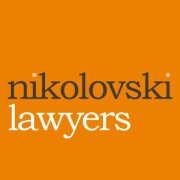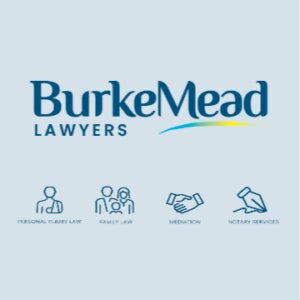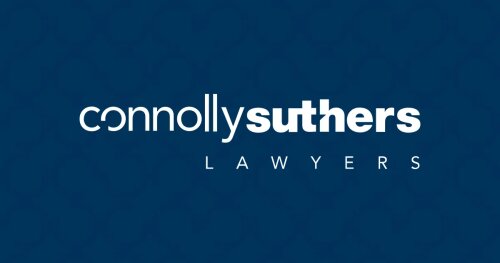Best Toxic Mold Lawyers in Australia
Share your needs with us, get contacted by law firms.
Free. Takes 2 min.
Or refine your search by selecting a city:
List of the best lawyers in Australia
About Toxic Mold Law in Australia
Toxic mold, often referred to as black mold, poses significant health risks when it grows indoors, typically in damp or water-damaged areas. In Australia, the awareness and legal implications of toxic mold have been increasing due to its health effects. Although there is no specific federal legislation targeting toxic mold, legal cases often arise from personal injury claims, landlord-tenant disputes, and property damage associated with mold growth.
Why You May Need a Lawyer
Legal issues related to toxic mold can arise in various contexts, necessitating professional legal advice and representation. Common situations include:
- Personal Injury Claims: If you've suffered health issues due to exposure to toxic mold, a lawyer can help assess your situation and pursue compensation.
- Property Damage: Mold infestations can cause significant damage to property. Legal advice may be required to negotiate damages with property sellers or landlords.
- Landlord-Tenant Disputes: Tenants who experience mold growth due to landlord negligence may seek legal help to enforce repair obligations or obtain compensation for damages.
- Real Estate Transactions: Buyers who discover mold post-purchase may require legal assistance to address nondisclosure or misrepresentation by the seller.
Local Laws Overview
Toxic mold issues in Australia intersect with several areas of law, including property law, personal injury law, and tenancy regulations. Key legal aspects include:
- Occupational Health and Safety (OHS) Laws: These regulate workplaces, ensuring safe environments free of mold hazards.
- Residential Tenancies Act: In various states, this act governs landlord responsibilities, including providing habitable living conditions.
- Public Health Legislation: State and territory health departments may issue guidelines on managing indoor mold to protect public health.
- Building Codes: National Construction Code requirements stipulate building standards that can prevent mold through adequate ventilation and moisture control.
Frequently Asked Questions
What causes toxic mold, and where does it usually grow?
Toxic mold typically grows in damp, poorly ventilated areas due to water leaks, high humidity, or flooding. It can thrive on materials like wood, wallpaper, and insulation.
What health issues are associated with toxic mold exposure?
Exposure can lead to respiratory problems, allergies, skin irritation, and, in severe cases, immune system complications, especially among vulnerable individuals like children and the elderly.
Am I responsible for mold removal as a tenant?
The responsibility depends on the cause. Landlords are typically liable if mold results from structural issues, while tenants may be responsible for mold caused by inadequate ventilation or personal activities.
Can mold affect property value?
Yes, mold can significantly reduce property value due to the costs associated with removal and repair, as well as potential health risks to occupants.
How can a lawyer help with a landlord-tenant mold dispute?
A lawyer can assist by advising on rights and obligations, representing you in negotiations or disputes, and, if necessary, pursuing formal legal action to resolve the issue.
What should I document if I find mold in my rented home?
Take clear photographs, log dates and communications with the landlord, and keep records of any health issues or costs incurred as a result of the mold.
Is there a statute of limitations for mold-related claims in Australia?
Yes, the timeframe to commence legal action can vary by jurisdiction and claim type, typically starting from the discovery of damage or injury. Legal advice should be sought promptly.
What steps should I take if I suspect mold in my workplace?
Report the issue to your employer and safety officer immediately. Documentation and professional inspection may be necessary for formal resolution.
Can I purchase insurance to cover mold damage?
Insurance coverage for mold can vary; some policies may cover mold resulting from water damage but exclude it as a standalone issue. Review your policy details carefully.
What rights do I have if I bought a property with undisclosed mold issues?
You may have legal recourse based on nondisclosure or misrepresentation by the seller. Legal advice can clarify options for seeking repair costs or damages.
Additional Resources
For further assistance or information on toxic mold, consider reaching out to the following resources:
- State Health Departments: They offer guidelines and information on managing and preventing mold.
- Australian Building Codes Board: Provides building code standards that address moisture control.
- Tenant's Unions: Offer advice and support for tenant rights related to mold and other habitability issues.
- Legal Aid Services: Provide access to legal advice and assistance for individuals facing mold-related legal matters.
Next Steps
If you believe you require legal assistance due to issues related to toxic mold, consider taking the following steps:
- Document all evidence of mold, communications, and any health or financial impacts arising from mold exposure.
- Consult with a specialized lawyer who has experience in toxic mold cases to explore your legal options and next steps.
- Consider reaching out to relevant organizations or government agencies for guidance and support related to your particular situation.
- Keep informed about your rights and obligations under local laws to ensure you effectively address and manage mold-related issues.
Lawzana helps you find the best lawyers and law firms in Australia through a curated and pre-screened list of qualified legal professionals. Our platform offers rankings and detailed profiles of attorneys and law firms, allowing you to compare based on practice areas, including Toxic Mold, experience, and client feedback.
Each profile includes a description of the firm's areas of practice, client reviews, team members and partners, year of establishment, spoken languages, office locations, contact information, social media presence, and any published articles or resources. Most firms on our platform speak English and are experienced in both local and international legal matters.
Get a quote from top-rated law firms in Australia — quickly, securely, and without unnecessary hassle.
Disclaimer:
The information provided on this page is for general informational purposes only and does not constitute legal advice. While we strive to ensure the accuracy and relevance of the content, legal information may change over time, and interpretations of the law can vary. You should always consult with a qualified legal professional for advice specific to your situation.
We disclaim all liability for actions taken or not taken based on the content of this page. If you believe any information is incorrect or outdated, please contact us, and we will review and update it where appropriate.
Browse toxic mold law firms by city in Australia
Refine your search by selecting a city.

















